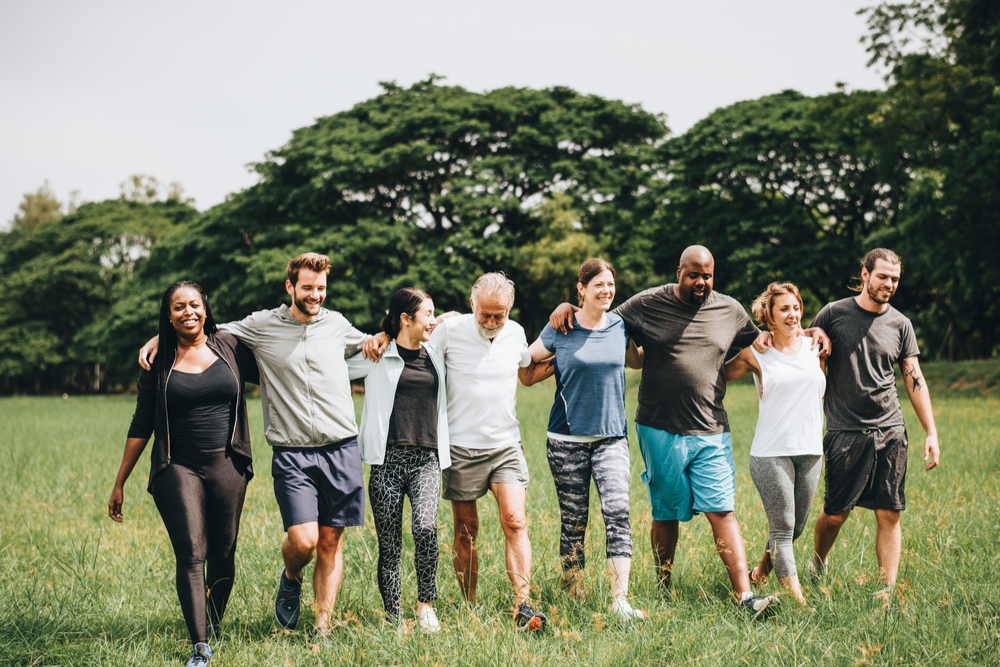Addiction can be an isolating condition. It harms a person’s emotional state and relationships. That’s why creating connections is so important in addiction recovery. Treatment programs encourage the fellowship you find in peer support groups during treatment and after it’s complete. We’ll review why peer support matters and how treatment makes it a priority.
Why peer support matters in addiction recovery
Peer support is a core part of treatment. Its impact can be seen in many aspects of addiction recovery.
Peer connections help people get started in recovery
People who misuse opioids may be hesitant to start treatment. Some have had bad experiences with health care, while others worry about the stigma of asking for help. Peer outreach gets around these issues by building trust. These individuals know the ups and downs of recovery firsthand because they’ve been through treatment and understand a person’s hesitation. Making a personal connection with a person in need is the first and most vital step. In one study, peer outreach workers spoke personally with several people who were misusing opioids. Nearly everyone began methadone treatment shortly after. And over half were still in rehab 30 and 60 days later.
Peer support groups provide a judgment-free space
No matter what you struggle with, peers can meet you “where you are” in your recovery. This nonjudgmental approach is essential. You may not trust someone who treats you like you’re in trouble or a lost cause. Peers have been where you are, and they understand. They know what it’s like to have loved ones give up or abandon them. Addiction recovery is difficult even with positive support. And a judgment-free approach can help you understand what you need. Peers will be straight with you while caring about your wellbeing.
You can hear stories and experiences like yours
Addiction recovery can be lonely and confusing. Emotions and thoughts can get tangled together. As you begin recovery, you may wonder if anyone could relate to your experiences. That’s where peer support comes in. Everyone has their own unique journey through addiction. But many stories have similar threads running through them. When you hear situations you relate to, you may not feel so alone. You may hear others talk about things you can’t put into words. Connecting helps both you and the other person through recovery.
You make life-long friends
People in recovery want to see their friends live well and overcome hurdles. Going through the ups and downs of recovery helps people build life-long relationships. When you haven’t been in recovery for years, you’ll still turn to these friends for help.
How treatment encourages peer support
Many people with addictions isolate themselves. They’re used to keeping their addiction a secret. Some find it hard to open up in treatment because of this. Peers are brought together in group therapy. This approach helps people to open up. They learn to care for and support each other. When they lean on their peers, they learn to relate with others. Group therapy and peer activities give people a chance to form trusting relationships. These opportunities help people rebuild their social lives. They learn to build a network of people who can help them on their journey. People use what they’ve learned in rehab to connect with peers in other ways. As people complete rehab, they’re encouraged to join peer support groups. Alcoholics Anonymous (AA) is one example of a 12-step group. Research shows that AA can help a person stay away from substances. But it can also improve depression symptoms; this matters because depression is common for people with addiction.
Peer connections: Long-term support for addiction recovery
Rehab programs recognize the power of peer relationships. Peers can keep a person accountable during addiction recovery. And they offer love and support through the hardest days. To connect with others going through treatment and recovery, contact the P.A.T.H. program today at 1-713-528-3709.

